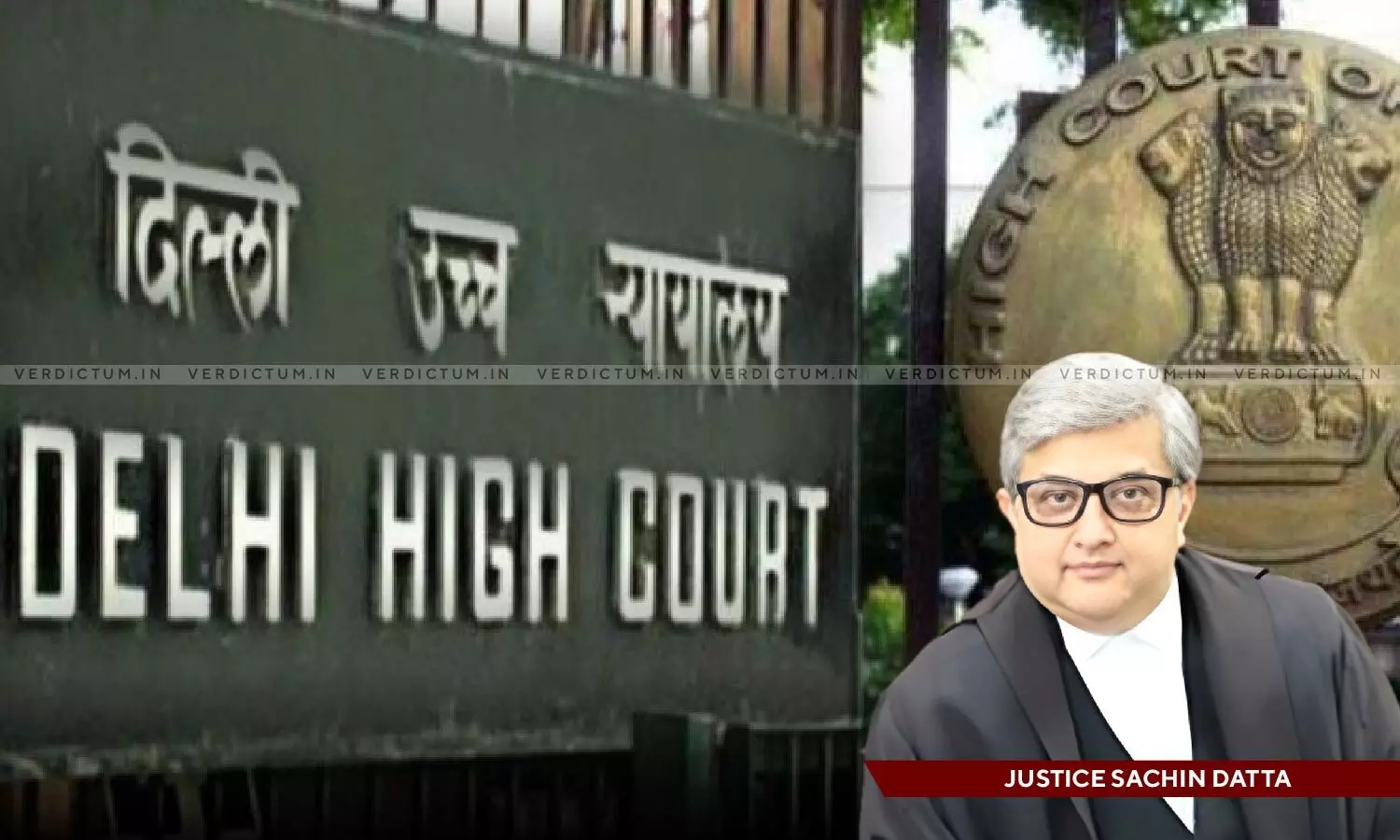
Justice Sachin Datta, Delhi High Court
High Court Expresses Dismay Over Delhi Public School Allegedly Engaging Bouncers To Physically Block Entry Of Students Into School
 |
|The Delhi High Court stated that the Delhi Public School’s conduct reflected the “fundamental misunderstanding of a school’s role in the society.”
The Delhi High Court expressed its dismay at the alleged conduct of the Delhi Public School in engaging “bouncers” to physically block entry of certain students into the school premises over fee dues, while stating that such a reprehensible practice has no place in an institute of learning.
The Court stated that the Delhi Public School’s conduct reflected the “fundamental misunderstanding of a school’s role in the society.” The Court pointed out that “A school though charges fees for the services rendered, cannot be equated with a pure commercial establishment. The driving force and character of a school (particularly a school such as the petitioner, which is run by a pre-eminent society) is rooted not in profit maximisation but in public welfare, nation building and the holistic development of children. The primary objective of a school is to impart education and inculcate values, not to operate as a business enterprise.”
A Single Bench of Justice Sachin Datta remarked, “Public shaming/intimidation of a student on account of financial default, especially through force or coercive action, not only constitutes mental harassment but also undermines the psychological well being and self-worth of a child. The use of “bouncers” fosters a climate of fear, humiliation and exclusion that is incompatible with the fundamental ethos of a school.”
Senior Advocates Pinaki Mishra and Puneet Mittal appeared for the Petitioner, while Advocate Abhaid Parikh represented the Respondent.
Brief Facts
The present application was filed by the Applicants (i.e., parents of students of the Petitioner school), alleging non-compliance with the directions contained in the High Court’s previous Order. The High Court had reprimanded Delhi Public School, Dwarka (Petitioner) for segregating students over non-payment of fees, observing that the school is subjecting them to indignity and harassment at a tender age.
Essentially, the grievance canvassed by the Applicants was that in contravention of the said Order, the Petitioner took coercive and arbitrary action against the students in guise of arrears of fees.
Court’s Reasoning
The High Court remarked, “This Court is also constrained to express its dismay at the alleged conduct of the petitioner school in engaging “bouncers” to physically block entry of certain students into the school premises. Such a reprehensible practice has no place in an institute of learning. It reflects not only disregard to the dignity of a child but also fundamental misunderstanding of a school’s role in the society.”
The Bench stated, “The school, no doubt, is entitled to charge appropriate fees, especially given the financial outlay required to sustain infrastructure, remunerate staff and provide a conducive learning environment. However, the school is different from a normal commercial establishment, inasmuch as it carries with it fiduciary and moral responsibilities towards its students.”
The Court also stated, “It must also be emphasised that the concerned parents are obliged to adhere and comply with the orders passed by this Court as regards payment of requisite fees to the school.”
Consequently, the Court ordered, “It is hoped and expected that the petitioner school as also the applicants/parents will act with circumspection and cooperate with each other with a view to advance the interest of the concerned students.”
Accordingly, the High Court disposed of the Application.
Cause Title: Delhi Public School Dwarka v. National Commission For Protection Of Child Rights & Ors. (Neutral Citation: 2025:DHC:4901)
Appearance:
Petitioner: Senior Advocates Pinaki Mishra and Puneet Mittal; Advocates Sakshi Mendiratta, Bhuwan Gugnani and Nupur
Respondent: SC Sameer Vashisht; Advocates Abhaid Parikh, Rishabh Dubey, Garima Sardana, Manoj K. Sharma, Manish Gupta, Vivek Chandrasekhar, Akanchha Jhunjhunwala, Deepti Verma, Sandeep Gupta and Avni Singh